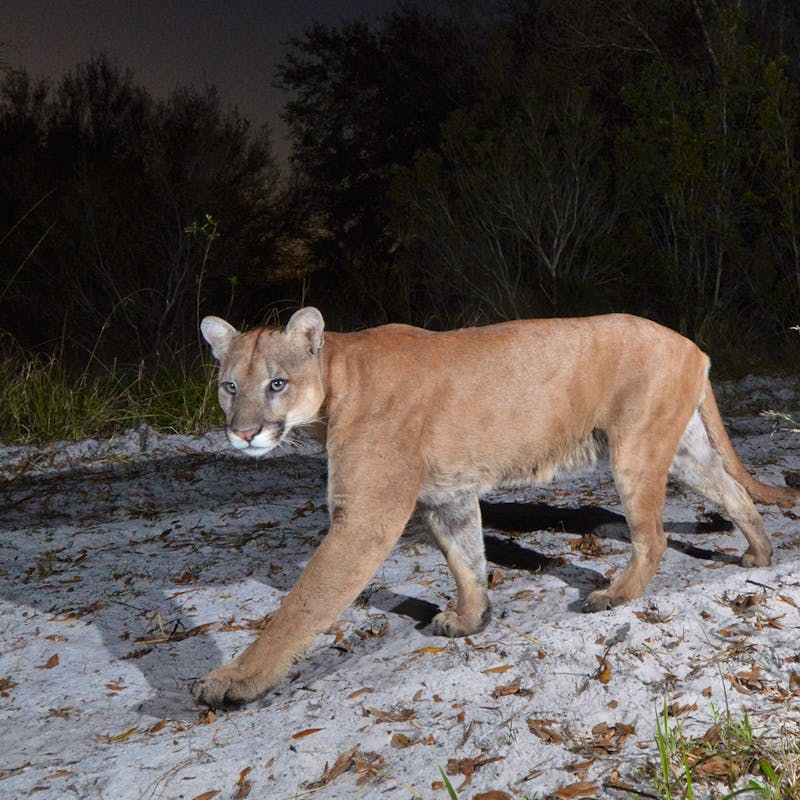Last night was not the first time we got lost, but it was the worst time. We ended up at the edge of a dark Louisiana graveyard with towering monuments to the bayou’s wealthy dead. At midnight, after a day on a boat in the humid soup of the Gulf surrounded by brown pelicans turned black and orange with oil spilled from the Deepwater Horizon, we would have preferred night demons torturing us in our sleep to an endless drive around unknown stretches of the city. But there we were. We were all being patient, kind, (did I mention patient?) strenuously patient, but so, so, tired.
“I think if this next turn doesn’t get us to the hotel, we just pull over in a well-lit parking lot and sleep for the night,” Jamie Clark said, trying to add a bit of levity to the situation. We were within a 5 minute drive of our hotel but we had gotten on some stretch of road that led to literally nowhere except this graveyard. With the road signs MIA, my iPhone seeing roads where there were none and not seeing them where they were, the symbolism of the moment was perfect.

Our dependence on fossil fuels has taken us down a road that seems to have no clear outlet; we are lost in the dark on the road to an ancient graveyard strewn with the bones of a civilization gone wrong. The road signs that would lead us out of this seem long gone or they never existed in the first place. So we have taken on a mentality that if we just find the right technology, we can engineer a way to continue sucking oil and gas and digging coal out of the ground so that we don’t have to face the predicament we are in head-on. We are all tired, every day.
After a day on an ocean sickened by the filthy byproducts of our current reality, I felt an extraordinary exhaustion beyond the physical. It was the kind of fatigue that transforms your personality, your ability to relate to others. How did we get to this point, where black tar smothers the lungs of miners and the white feathers of birds? What if we all had to stare at this reality every day, instead of being distracted by American Idol and Lost, the Superbowl and the latest celebrity antics? I don’t know if the will to change would become suddenly apparent, or we would all sink into a despair so deep that we would never emerge.
This morning the government revised its estimates of the size of the oil spill. Again. This time they doubled it to more than 1 million gallons a day, or about 50 million to date. That is five Exxon Valdez’s that have oozed into the waters of the Gulf. The finger pointing continues in Congress, the Obama administration, BP, Haliburton, Transocean and others. But nobody is talking about what really matters here; it’s not that BP, Haliburton and Transocean cut corners, or that the government failed miserably at monitoring and regulating this industry—corporations put the bottom line first all the time and the government is always complicit in their ability to do so. What matters is that as a society at large, we are lost, and we are all responsible, confused and in a sense, helpless to change.

The truth is, we need leaders with the courage to lead and people with the courage to support them. I have heard from so many people who have read these blog entries over the past month—many have said that they watch the news and just sit and cry. They are crying not just over the pelicans, dolphins and sea turtles, or the web of life that has been irrevocably infected by the toxic waste of the oil industry, but also about the helplessness they feel to find a way out of this labyrinthian reality we have created for ourselves. Fossil fuels and consumption have become an addiction, manufactured by corporations and handed out to every child at birth by the government.
We can all see when disasters like this happen how lost we are, but the truth is that the disaster is unfolding every day, with every acre of land razed for development and every ton of carbon pollutants emitted into the atmosphere. We are driving around disaster every moment of every day, and every once in a while we crash head-on into it like we have in the Gulf. Corporations suggest we can engineer our way out of this mess with deeper wells and cleaner coal, but just like my iPhone failed to help Jamie, Cindy and I find our way home, technology cannot deliver the solution.
I promise my next blog will steer clear of apocalyptic rhetoric, (in fact I can promise it will be almost upbeat, as I have already written it!). But time spent on the Gulf these days leaves little to smile about. BP has claimed that it will clean up every drop of oil and the Obama administration has pledged to see that they do just that. But it is time for both of these entities to either admit the impossibility of even approaching a full cleanup, or explain to us where they got their magic wands so we can all go out and get them too.



